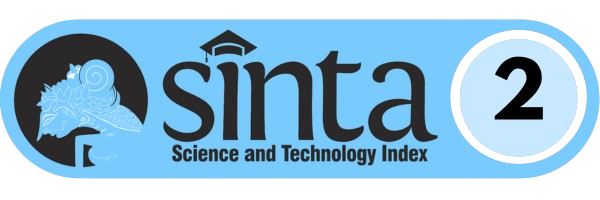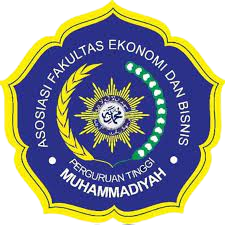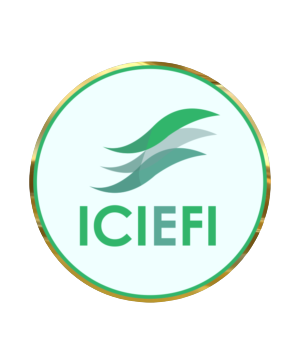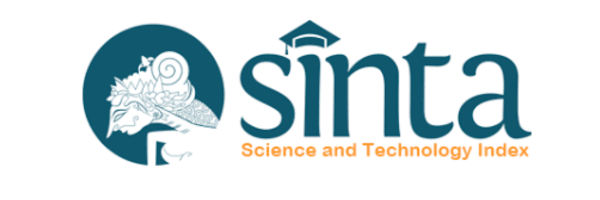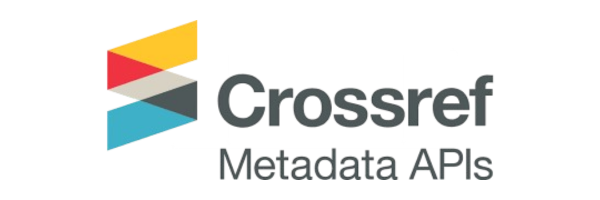Dynamic Panel Data Analysis of the Human Development Index in Indonesia
DOI:
https://doi.org/10.24269/ekuilibrium.v20i2.2025.pp229-245Keywords:
Dynamic Panel Data, Human Development Index, Macroeconomics, Indonesia, GMMAbstract
The human Development Index is an important indicator for measuring people’s welfare. This study aims to determine the influence of household consumption, Gross Regional Domestic Product, investment, and government expenditure on the human development index (HDI) in 35 provinces in Indonesia for the period 2014-2023. Secondary data was sourced from the Central Statistics Agency and used to estimate the model, a dynamic panel approach was utilized, based on the Generalized Method of Moments. The results showed that Gross Regional Domestic Product (GRDP) has a significant influence on increasing the human development index (HDI), especially through increased consumption for education and health. In addition, achieving economic development in a country requires individual and collective human efforts in improving the quality of life. Important factors that must be built are the quality of human resources, facilities and infrastructure. Government spending focused on sectors that directly affect people's welfare can accelerate the improvement of the quality of human resources. This finding shows the importance of macroeconomic stability and fiscal policy effectiveness in supporting sustainable human development.
Downloads
References
Apriska, Lita, M. Irwan, Ida Ayu Putri Suprapti, and Jaka Anggara. 2024. “Pengaruh Pengeluaran Pemerintah Sektor Kesehatan, Pertumbuhan Ekonomi, Dan Kemiskinan Terhadap Indeks Pembangunan Manusia (Kabupaten/Kota Di Provinsi NTB).” Jurnal Sosial Ekonomi Dan Humaniora 10(1): 1–11. doi:10.29303/jseh.v10i1.451.
Arba, Muhammad Rasyid, Supriyanto, and Nunung Nurhayati. 2021. “Aplikasi Model Persamaan Simultan Data Panel Dinamis Untuk Pemodelan Pertumbuhan Ekonomi Dan Indeks Pembangunan Manusia Di Jawa Tengah.” Jurnal Ilmiah Matematika dan Pendidikan 1(1): 33–43. https://jurnal.unupurwokerto.ac.id/index.php/fusioma/article/view/26.
Ayaviri-Nina, Víctor Dante, Gabith Miriam Quispe-Fernández, Jorge Leonardo Vanegas, Verónica Ortega-Mejía, and Otilia Vanessa Cordero-Ahiman. 2022. “Importance of Purchasing Power and Education in the Food Security of Families in Rural Areas—Case Study: Chambo, Ecuador.” Sustainability (Switzerland) 14(10). doi:10.3390/su14106068.
Azfirmawarman, Dony, Lince Magriasti, and Yulhendri. 2023. “Indeks Pembangunan Manusia Di Indonesia (Kajian Perubahan Metodologi Penghitungan) Universitas Pahlawan Tuanku Tambusai.” Jurnal Pendidikan dan Konseling 5(5): 117–25.
Bakar, Abu. 2020. “Analisis Pengaruh Pengeluaran Konsumsi Rumah Tangga Dan Pengeluaran Pemerintah Terhadap Indeks Pembangunan Manusia Kabupaten Mimika.” Jurnal Kritis 4(2): 16–39. https://ejournal.stiejb.ac.id/index.php/jurnal-kritis/article/view/111/75.
Biltagy, Marwa, and Manar Hamdi. 2024. “Public Health Expenditure and Household Poverty: Case Study of Egypt.” Future Business Journal 10(1): 1–12. doi:10.1186/s43093-023-00295-0.
Bjarnason, Thoroddur, and Tialda Haartsen. 2024. “Closest Family in the Household or in the Community? The Role of Family in Residential Satisfaction among Intended Stayers in Iceland.” Population, Space and Place 30(3). doi:10.1002/psp.2714.
BPS. 2024. “Indeks Pembangunan Manusia Menurut Provinsi.” Badan Pusat Statistik.
Dira, Aldy Friyatna, Kurniawan Prambudi Utomo, Mic Finanto Ario Bangun, Eigis Yani Pramularso, and Faroman Syarief. 2023. “Pengaruh Investasi Dan IPM Terhadap Pertumbuhan Ekonomi Hijau Di Provinsi Kalimantan Timur.” EKOMBIS REVIEW: Jurnal Ilmiah Ekonomi dan Bisnis 11(2): 1437–46. doi:10.37676/ekombis.v11i2.4181.
Efendi, Zakaria, Lorentino Togar Laut, and Panji Kusuma Prasetyanto. 2020. “Pengaruh Jumlah Penduduk, Inflasi Dan Pertumbuhan Ekonomi Terhadap Konsumsi Masyarakat Di Kota Magelang Effect of Population, Inflation and Economic Growth on Public Consumption in the City of Magelang.” DINAMIC: Directory Journal of Economic 2(3): 810–20.
Endaryono, Bakti Toni, and Tjipto Djuhartono. 2024. “Faktor Faktor Yang Menentukan Tingkat Investasi Dalam Pertumbuhan Ekonomi.” JABE (Journal of Applied Business and Economic) 10(4): 399. doi:10.30998/jabe.v10i4.22456.
Hanggarany, Pramodya. 2022. “Hubungan Pengeluaran Konsumsi Rumah Tangga, Pengeluaran Konsumsi Pemerintah Dan Pajak Daerah Terhadap Indeks Pembangunan Manusia (Ipm) Di Kabupaten Tulungagung Tahun 2011-2020.” Juornal of Economics and Policy Studies 3(2): 1–18. doi:10.21274/jeps.v3i2.7115.
Hannyfah, Miftahul, Evi Susanti Tasri, Cintia Darma Yenti, and Yophi Kristiani Zai. 2023. “Analisis Pengaruh Inflasi, Kemiskinan Dan Pengangguran Terhadap Produk Domestik Regional Bruto (PDRB) Di Indonesia Era Pandemi Covid-19.” Jurnal Economic Development 1(1): 34–45. https://www.ecodev.bunghatta.ac.id/index.php/ecodev/article/view/14/24.
Hanun, Nurlaila. 2018. “Pengaruh Pendapatan, Jumlah Tanggungan Keluarga Dan Pendidikan Terhadap Pola Konsumsi Rumah Tangga Nelayan Di Desa Seuneubok Rambong Aceh Timur.” Jurnal Samudra Ekonomika 2(1): 75–84.
Humiati, Humiati, and Dwi Budiarti. 2020. “Peran Perguruan Tinggi Dalam Meningkatkan Sumber Daya Manusia.” JMM - Jurnal Masyarakat Merdeka 3(1): 1–7. doi:10.51213/jmm.v3i1.46.
Husni, Alya Hafizhatul, and Syamsul Amar. 2024. “Pengaruh Konsumsi Rumah Tangga, Investasi, Dan Net Ekspor Terhadap Indeks Pembangunan Manusia Di Indonesia Periode Tahun 2018-2022.” Media Riset Ekonomi Pembangunan (MedREP) 1(4). https://medrep.ppj.unp.ac.id/index.php/MedREP/article/view/131.
Jawak, Anastasia Yolanda Putri br, Feronika Zendrato, Dede Ruslan, and Raina Linda Sari. 2024. “Pengaruh Konsumsi Rumah Tangga, Investasi Dan Pengeluaran Pemerintah Terhadap Index Pembangunan Manusia Di Provinsi Sumatera Utara.” Jurnal Ekuilnomi 6(1): 46–52. doi:10.36985/82v80466.
Juardi, Mu. Arief Ariyanto Ahmad, and Baso Iwang. 2023. “Analisis Jumlah Penduduk, Tingkat Pendidikan, PDRB, Dan Inflasi Terhadap Kemiskinan Di Provinsi Sulawesi Selatan Analysis of Population, Education Level, GRDP and Inflation on Poverty in South Sulawesi Province.” Bulletin of Economic Studies (BEST) 3(1): 14–24.
Lestari, Dwi, and Nur Azlia Arumi. 2024. “Factors That Influence the Islamic Perspective Human Development Index as Evidence of the Development of the Muslim Community.” Journal of lslamic Economics and Bussines Ethics 1(2): 75–93. doi:10.24235/jiesbi.v1i2.133.
Mashita, Juni, and Vella Anggresta. 2022. “Dampak Inflasi, Ihk, Ipm, Nilai Produksi, Tenaga Kerja Terhadap Produk Domestik Regional Bruto Umkm Di Kota Semarang.” Jurnal Cakrawala Ilmiah 2(3): 933–42.
Maulana, Ihsan, Zahrani Salsabila, and Deris Dermawan. 2022. “Pengaruh Penduduk Miskin, Tingkat Pengangguran Dan PDRB Terhadap IPM Di Wilayah Provinsi Banten Pada Tahun 2019 – 2021.” Jurnal Ekuilnomi 4(2): 164–70. doi:10.36985/ekuilnomi.v4i2.452.
Mongan, Jehuda Jean Sanny. 2019. “Pengaruh Pengeluaran Pemerintah Bidang Pendidikan Dan Kesehatan Terhadap Indeks Pembangunan Manusia Di Indonesia.” Indonesian Treasury Review Jurnal Perbendaharaan Keuangan Negara dan Kebijakan Publik 4(2): 163–76. doi:10.33105/itrev.v4i2.122.
Morse, Stephen. 2003. “Greening The United Nations’ Human Development Index?” Sustainable Development 11(4): 183–98. doi:10.1002/sd.219.
Mukarramah, and Muhammad Zulkarnain. 2024. “Indeks Pembangunan Manusia Terhadap Produk Domestik Regional Bruto Di Provinsi Aceh.” Jurnal Cakrawala Akademika 1(4): 1238–48. doi:10.70182/jca.v1i4.17.
Nabilah, Dessy, and Setiawan. 2016. “Pemodelan Pertumbuhan Ekonomi Indonesia Menggunakan Data Panel Dinamis Dengan Pendekatan Generalized Method of Moment Arellano-Bond.” Jurnal Sains Dan Seni Its 5(2): 2337–3520.
Naila, Putri, Tarmizi Abbas, and Jariah Abubakar. 2024. “Pengaruh Ekspor, Investasi, Dan Indeks Pembangunan Manusia (Ipm) Terhadap Produk Domestik Bruto (Pdb) Di Indonesia.” Jurnal Ekonomi Regional Unimal 6(2): 50. doi:10.29103/jeru.v6i2.14586.
Nabilah, Dessy, and Setiawan. 2016. “Pemodelan Pertumbuhan Ekonomi Indonesia Menggunakan Data Panel Dinamis Dengan Pendekatan Generalized Method of Moment Arellano-Bond.” Jurnal Sains Dan Seni Its 5(2): 2337–3520.
Downloads
Published
How to Cite
Issue
Section
License

This work is licensed under a Creative Commons Attribution-ShareAlike 4.0 International License.
Retained Rights/Terms and Conditions of Publication
1. As an author you (or your employer or institution) may do the following:
- make copies (print or electronic) of the article for your own personal use, including for your own classroom teaching use;
- make copies and distribute such copies (including through e-mail) of the article to research colleagues, for the personal use by such colleagues (but not commercially or systematically, e.g. via an e-mail list or list server);
- present the article at a meeting or conference and to distribute copies of the article to the delegates attending such meeting;
- for your employer, if the article is a ‘work for hire’, made within the scope of your employment, your employer may use all or part of the information in the article for other intra-company use (e.g. training);
- retain patent and trademark rights and rights to any process, procedure, or article of manufacture described in the article;
- include the article in full or in part in a thesis or dissertation (provided that this is not to be published commercially);
- use the article or any part thereof in a printed compilation of your works, such as collected writings or lecture notes (subsequent to publication of the article in the journal); and prepare other derivative works, to extend the article into book-length form, or to otherwise re-use portions or excerpts in other works, with full acknowledgement of its original publication in the journal;
- may reproduce or authorize others to reproduce the article, material extracted from the article, or derivative works for the author's personal use or for company use, provided that the source and the copyright notice are indicated, the copies are not used in any way that implies RCEPM-LIPI endorsement of a product or service of any employer, and the copies themselves are not offered for sale.
All copies, print or electronic, or other use of the paper or article must include the appropriate bibliographic citation for the article's publication in the journal.
2. Requests from third parties
Although authors are permitted to re-use all or portions of the article in other works, this does not include granting third-party requests for reprinting, republishing, or other types of re-use. Requests for all uses not included above, including the authorization of third parties to reproduce or otherwise use all or part of the article.
3. Author Online Use
- Personal Servers. Authors and/or their employers shall have the right to post the accepted version of articles pre-print version of the article, or revised personal version of the final text of the article (to reflect changes made in the peer review and editing process) on their own personal servers or the servers of their institutions or employers without permission from Universitas Muhamamdiyah Ponorogo, provided that the posted version includes a prominently displayed Universitas Muhamamdiyah Ponorogo copyright notice and, when published, a full citation to the original publication, including a link to the article abstract in the journal homepage. Authors shall not post the final, published versions of their papers;
- Classroom or Internal Training Use. An author is expressly permitted to post any portion of the accepted version of his/her own articles on the author's personal web site or the servers of the author's institution or company in connection with the author's teaching, training, or work responsibilities, provided that the appropriate copyright, credit, and reuse notices appear prominently with the posted material. Examples of permitted uses are lecture materials, course packs, e-reserves, conference presentations, or in-house training courses;
- Electronic Preprints. Before submitting an article to an Ekuilibrium: Jurnal Ilmiah Bidang Ilmu Ekonomi, authors frequently post their manuscripts to their own web site, their employer's site, or to another server that invites constructive comment from colleagues. Upon submission of an article to Ekuilibrium: Jurnal Ilmiah Bidang Ilmu Ekonomi, an author is required to transfer copyright in the article to Economy Faculty Universitas Muhammadiyah Ponorogo, and the author must update any previously posted version of the article with a prominently displayed Economy Faculty Universitas Muhammadiyah Ponorogo copyright notice. Upon publication of an article by the Universitas Muhammadiyah Ponorogo, the author must replace any previously posted electronic versions of the article with either (1) the full citation to the work with a Digital Object Identifier (DOI) or link to the article abstract in Ekuilibrium: Jurnal Ilmiah Bidang Ilmu Ekonomi journal homepage, or (2) the accepted version only (not the final, published version), including the Economy Faculty Universitas Muhammadiyah Ponorogo copyright notice and full citation, with a link to the final, published article in journal homepage.
4. Articles in Press (AiP) service
Economy Faculty Universitas Muhammadiyah Ponorogo may choose to publish an abstract or portions of the paper before we publish it in the journal. Please contact our Production department immediately if you do not want us to make any such prior publication for any reason, including disclosure of a patentable invention.
5. Author/Employer Rights
If you are employed and prepared the article on a subject within the scope of your employment, the copyright in the article belongs to your employer as a work-for-hire. In that case, Economy Faculty Universitas Muhammadiyah Ponorogo assumes that when you sign this Form, you are authorized to do so by your employer and that your employer has consented to the transfer of copyright, to the representation and warranty of publication rights, and to all other terms and conditions of this Form. If such authorization and consent has not been given to you, an authorized representative of your employer should sign this Form as the Author.
6. RCEPM-LIPI Copyright Ownership
It is the formal policy of Economy Faculty Universitas Muhammadiyah Ponorogo to own the copyrights to all copyrightable material in its technical publications and to the individual contributions contained therein, in order to protect the interests of the Economy Faculty Universitas Muhammadiyah Ponorogo, its authors and their employers, and, at the same time, to facilitate the appropriate re-use of this material by others. Economy Faculty Universitas Muhammadiyah Ponorogo distributes its technical publications throughout the world and does so by various means such as hard copy, microfiche, microfilm, and electronic media. It also abstracts and may translate its publications, and articles contained therein, for inclusion in various compendiums, collective works, databases and similar publication.
7. Licensing Terms
Ekuilibrium is licensed under a Creative Commons Attribution-ShareAlike 4.0 International License.
Permissions beyond the scope of this license may be available at https://journal.umpo.ac.id/


